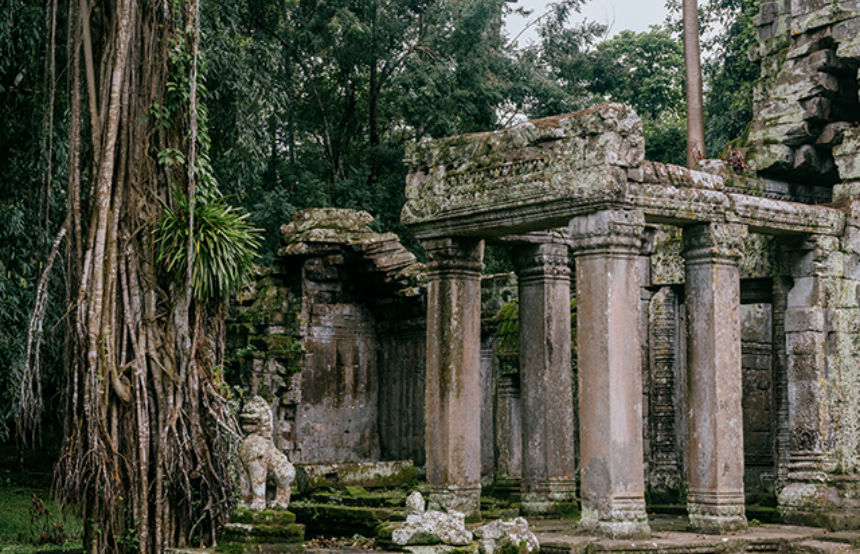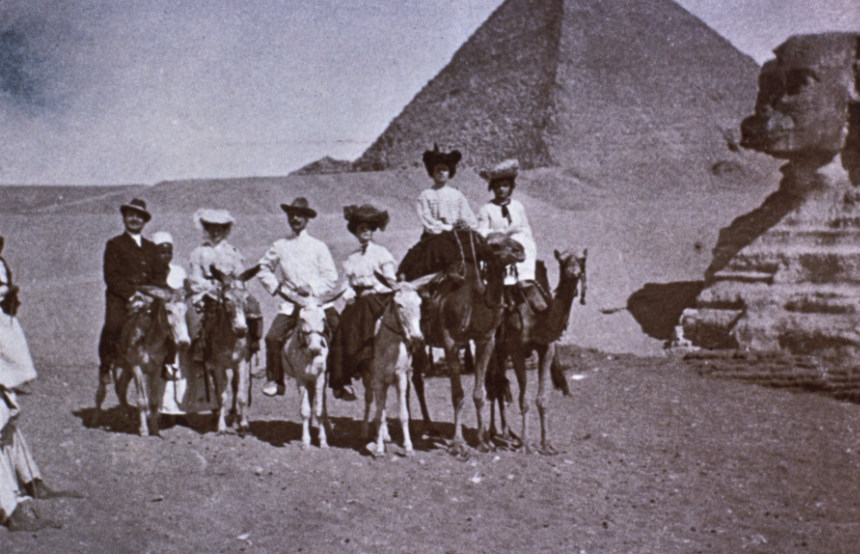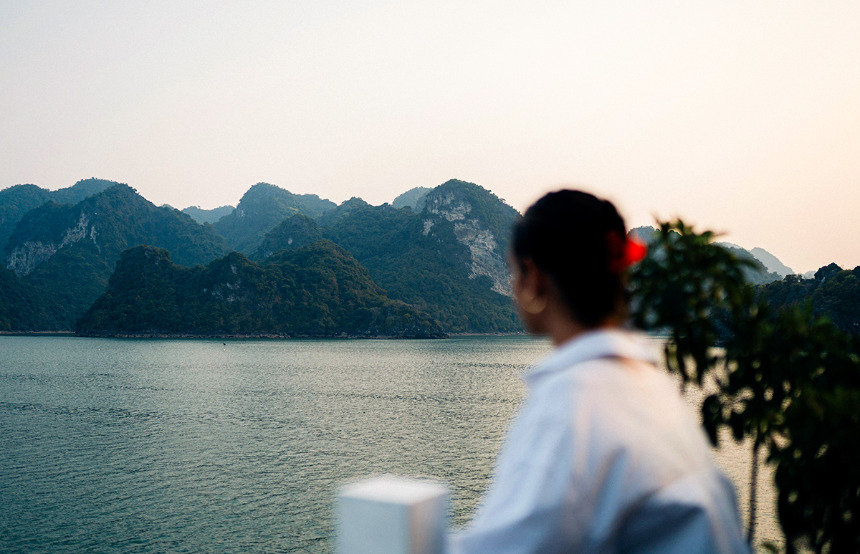Published 28th Jun. 2021
Reading time
'I' definitely does not always come before 'E' except after 'C' (just go to Iceland and see some 'glaciers') and you may want to 'warn' people about your 'worn' jeans (you may even shed a tear over the tear). The English language is full of quirks - words that sound the same but can be spelled differently, and words with the same sound and spelling but different meanings. Ah yes, for a language we expect the rest of the world to speak, we may not have made it the easiest. But if there's one thing we particularly love about it, it's our excellent ability to create some utterly brilliant collective nouns...
A staple of any African safari, these towering creatures are the tallest living terrestrial animal. Giraffes can easily be spotted sashaying across the planes of many countries in Africa, from the remote Skeleton Coast in Namibia and the South Luangwa National Park in Zambia, to the infamous Serengeti Plains in Tanzania (to name a few). For a unique encounter with these elegant creatures, stay in the iconic Giraffe Manor in Kenya's capital, Nairobi. Find yourself getting an affectionate lick on the cheek at breakfast as the giraffes, who roam the grounds, cheekily poke their heads through the windows - lured by the mouth-watering waft of a warm croissant.
We can't help but feel this is slightly misleading, as tigers generally tend to hunt alone, ambitiously (an 'ambition' of tigers, perhaps?) stalking their prey and often attacking animals larger than themselves. India is the best place to spot a real life Shere Khan (also known as a Bengal tiger), national parks such as Ranthambore, Kanha and Bandhavgarh will present opportunities to spot these striped felines. India's national parks re-open after monsoon season, so generally the best time to travel in search of these big cats is from October to March. Sadly, all species of tiger are under threat from poaching and habitat loss, as they are forced to compete for space with the ever-growing human population - so it is well worth a trip to see these beautiful beasts while you still can.
To be 'shrewd' is to 'show sharp powers of judgement' and as our closest relative (Chimpanzees share 97% of their DNA with us), it make sense that the great ape family - including chimpanzees, bonobos, gorillas, orangutans...and us - would have such a superlative collective name. If you're looking to meet one of our hairier, more orange (debatable, if you've ever watched TOWIE or Love Island...) cousins, then head to the tropical Indonesian island of Sumatra, the rugged Kalimantan National Park or the Danum Valley in Malaysian Borneo.
Admittedly not the most attractive of birds, vultures tend to have a somewhat sinister air - especially when you consider how much time they spend waiting around for half-eaten carcasses to become available to gorge on. So sinister in fact, that a group of feeding vultures is called a 'wake' (and we don't mean the opposite of 'sleep' - another English language-ism). You can see these scavenging birds of prey all over the world - with turkey vultures spread across most of the USA, but particularly in Southern California, Nevada and Utah. You can also see an abundance of species across Africa, especially in Kenya where they feed on the scraps left behind by bigger predators.
While a group of disorganised camels is called a herd, the term 'caravan' is used to refer to camels travelling together under human control, usually in a line. Often used for communication and trade across the desert areas of North Africa and the Arabian Peninsular, camels were (and still are) favoured because of their ability to withstand the harsh conditions. Today, a camel safari is one of the best ways to travel through the wilds of Kenya's Laikipia region, while in Morocco, you can camel trek through the Sahara - the most extensive desert on the planet - and marvel at the otherworldly arid landscapes and dramatic dunes. This is perhaps one of the most iconic travel experiences you can have and definitely bucket-list worthy.
Despite being possibly the least scary animal on the planet (with the exception of sloths, perhaps) the slow, considered pace of a tortoise makes it easy to see why, collectively, they are called a 'creep'. You can see an average-Joe tortoise pretty close to home - as warm and lush European countries like Spain - especially Menorca - and Greece have them running (kind of...) wild. But if you want a tortoise-on-steroids experience, you'll need to go further afield to the Galapagos Islands, where their native giant tortoises are the largest in the world (fun fact: in Spanish galapago actually means 'tortoise'). The largest on record is an impressive 6ft-long and weighs a whopping 63 stone - so big that they can actually carry humans, but so slow they would never need to.
Practical advice and inspiration for your next trip

Southeast Asia is a favourite for first-time travellers – safe, welcoming and easy to explore. Yet all too often, Cambodia is the casualty of the Indochina loop, with many simply dropping in to see the (admittedly awe-inspiring) Angkor before moving swiftly on. On my first visit, I was guilty as charged. But my return visit changed everything. Cambodia, I realised, has come of age. It’s no longer the ‘add-on’ destination, but a country that demands time, rewards curiosity and offers depth, warmth and discovery at every turn.
29th October 2025 - Cambodia Travel Inspiration

This article originally featured in the first edition of our magazine, Original Traveller. The world’s first tourist destination; Egypt has attracted the great and the good for more than four millennia. Tom Holland charts the ebb and flow of the country’s time travel. Egypt is where tourism began. Perhaps this is hardly surprising. By the 5th century BC, when the first tourist guide to Egypt was written, pharaonic civilisation was already more than two and a half millennia old.
29th October 2025 - Egypt Travel Inspiration

For those of us who don’t have to adhere to the constraints of the school holidays, we have a wide choice when it comes to choosing what season to travel in. Though the summer remains a top choice, thanks to the good weather across much of the Northern Hemisphere and the general societal norm of treating ourselves to a break at this time, the so-called ‘shoulder season’ is becoming ever-more popular.
28th October 2025 - Travel Inspiration

Our team of destination experts will get to know you and your unique requirements for your holiday

We work with you to build an ultra-personalised holiday itinerary with your choice of accommodation, experiences and activities

All of our holidays include little extras designed to make a big difference to your trip, from fast-tracking you through airport check-in and security to our network of local Concierges